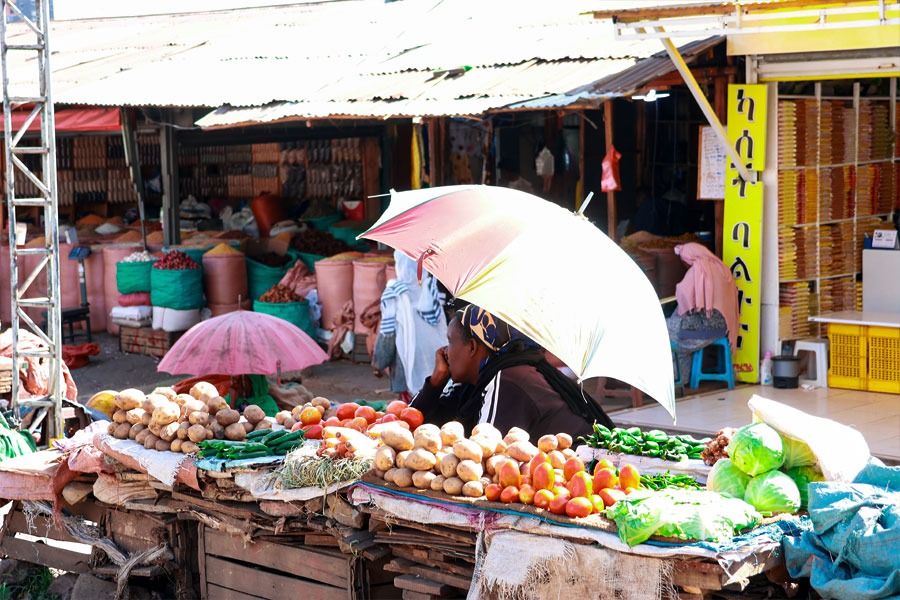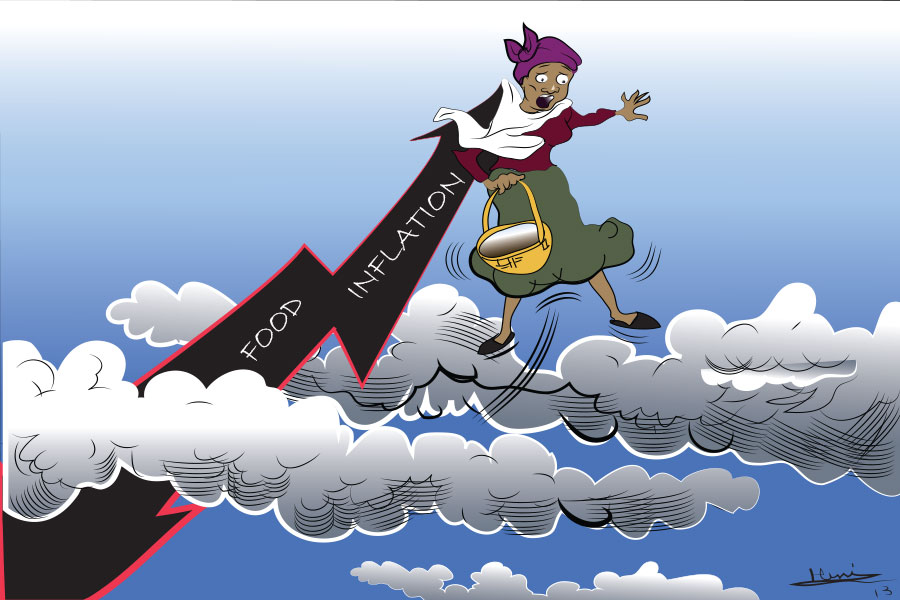
Fortune News | Jul 29,2023
Feb 19 , 2022
By Christian Tesfaye
Inflation is no longer a phenomenon affecting a few countries with the structure of their economies and monetary policies out of whack, such as Ethiopia and Turkey. It has gone global. Part of the reason is supply chain disruptions. But the main reason, as almost always, is fiscal and monetary expansionism across the world in response to the economic crisis wrought by pandemic-induced lockdowns.
Public spending is believed to have exploded by 10 trillion dollars in response to the pandemic while interest rates were lowered to historic lows, especially in the developed world. The wisdom of this will be debated based on how long global inflation lasts. Still, it is also refreshing to see that fundamental macroeconomic theories remain as crucial as ever.
No one looks at the cost of goods and services going up and thinks this could sometimes be good except economists. “Inflation is forgetting,” wrote Noah Smith, an economist, on his Substack, a blog post platform.
What does that mean?
Take the highly politicised and controversial issue of student debt in the US, which have a fixed interest rate. The higher the inflation, the lower the real value of a student’s debt compared to when they started in school. The erosion of the dollar depreciates the value of the debt.
Of course, this is a simplistic example. Several other factors will determine whether the debt burden indeed becomes more bearable. If the economy stagnates and real wages do not increase, or at least hold up to inflation, student debt will continue to harm financial standing.
But this “forgetting,” in reference to debt, informs how inflation will redistribute wealth from one section of the population to another. This is very much the case in Ethiopia. Debt has been under the continued attack of inflation’s “forgetting” influence over the past three years since the cost of goods and services has been going up by double-digit percentage points. This is good for some, terrible for others.
The beneficiaries are debtors. If there was ever a good time to take out a loan in Ethiopia, this is it. Even with a mind-numbingly high-interest rate of 20pc, it is a good bet that the debt will still be much less by the time the principal comes due. Unfortunately, not everybody can stroll into a bank and take out a loan. Businesses and individuals need to have collateral, the right networks in the financial sector or both to take out a loan.
Highly liquid businesses and individuals will also benefit to a high degree. One million Birr in a bank account? Buy a car; it will most certainly appreciate and will be more valuable than one million Birr in the future. How about 10 million Br? Invest in some real estate. The same rule applies.
In the short term at least, employers will be well off as well. Businesses usually do not waste time hiking prices for their products and services, but they drag their feet on pay increases for their employees. Before the labour market equilibrium adjusts as workers demand higher wages en masse, businesses will make a windfall between the higher prices they charge and the lower labour cost they have before the real value of wages catches up.
Wealth will be redistributed to this higher income group, but from whom?
It will be lower-income groups. For one thing, inflation is an unofficial tax on every consumer, but the burden will be more punishing for the poor. They will also not have enough savings to buy assets such as cars or real estate that appreciate or at least hold the value of their wealth.
But those mean that their real wealth is depreciated into the ether, not that it has been re-distributed away from them. The latter happens when they engage with financial intermediaries. The savings in their accounts are basically loans made out to a bank, which becomes a holder of short-term debt, which is in turn loaned out to the private and public sector. As the ultimate creditors to commercial banks, savers lose out the most.
On a more interesting note, it also means that it makes sense for the federal government to continue to seek credit through treasury bonds. It benefits from taking out loans that, when finally paid back, their real value has significantly fallen. If government spending prioritises pro-poor policies, such as welfare, health and education, it would be a further redistribution of wealth, this time towards the part of the population that is less well off. Unfortunately, banks that hold these bonds, the government’s creditors, will be put in an increasingly precarious position. For better worse, these are interesting times.
PUBLISHED ON
Feb 19,2022 [ VOL
22 , NO
1138]


Fortune News | Jul 29,2023

Viewpoints | Jul 01,2023

My Opinion | Dec 24,2022

Agenda | Sep 28,2024

Editorial | Jan 27,2024

Agenda | Dec 09,2023

Commentaries | Jun 15,2024

Commentaries | Jul 15,2023

Editorial | Jul 24,2021

Commentaries | Nov 25,2023

Photo Gallery | 172146 Views | May 06,2019

Photo Gallery | 162374 Views | Apr 26,2019

Photo Gallery | 152164 Views | Oct 06,2021

My Opinion | 136364 Views | Aug 14,2021





Dec 22 , 2024 . By TIZITA SHEWAFERAW
Charged with transforming colossal state-owned enterprises into modern and competitiv...

Aug 18 , 2024 . By AKSAH ITALO
Although predictable Yonas Zerihun's job in the ride-hailing service is not immune to...

Jul 28 , 2024 . By TIZITA SHEWAFERAW
Unhabitual, perhaps too many, Samuel Gebreyohannes, 38, used to occasionally enjoy a couple of beers at breakfast. However, he recently swit...

Jul 13 , 2024 . By AKSAH ITALO
Investors who rely on tractors, trucks, and field vehicles for commuting, transporting commodities, and f...

Oct 4 , 2025
Eyob Tekalegn (PhD) had been in the Governor's chair for only weeks when, on Septembe...

Sep 27 , 2025
Four years into an experiment with “shock therapy” in education, the national moo...

Sep 20 , 2025
Getachew Reda's return to the national stage was always going to stir attention. Once...

Sep 13 , 2025
At its launch in Nairobi two years ago, the Africa Climate Summit was billed as the f...

Oct 5 , 2025 . By NAHOM AYELE
In Meqelle, a name long associated with industrial grit and regional pride is undergo...

Oct 5 , 2025 . By BEZAWIT HULUAGER
The federal government is set to roll out a new "motor vehicle circulation tax" in th...

Oct 5 , 2025 . By NAHOM AYELE
The Bank of Abyssinia is wrestling with the loss of a prime plot of land once leased...

Oct 5 , 2025 . By BEZAWIT HULUAGER
The Customs Commission has introduced new tariffs on a wide range of imported goods i...